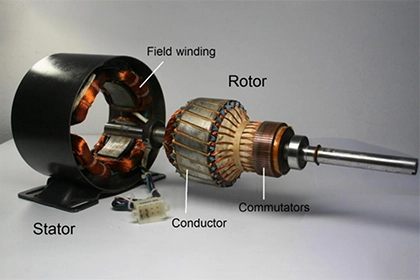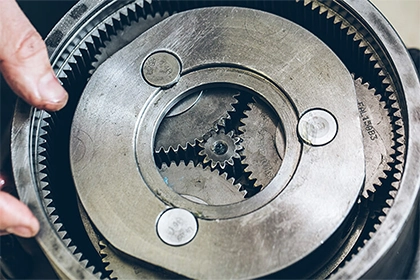
Can a dc motor be used as a generator?
DC motors can be effectively utilized as generators, converting mechanical energy into electrical energy through the principles of electromagnetic induction. In this article, we will provide a concise and accurate answer to the question of whether a DC motor can be used as a generator. We will then delve into the applications and considerations associated with utilizing DC motors as generators, offering valuable insights for professionals in various industries.
Can a DC Motor be Used as a Generator?
Yes, a DC Motor can be used as a generator. When a DC motor is mechanically rotated, it acts as a generator by leveraging the principles of electromagnetic induction. As the rotor spins, it moves through the magnetic field produced by the stator, inducing an electromotive force (EMF) in the armature windings. This EMF generates an electrical current, enabling the DC motor to function as a generator.
Applications and Considerations
Utilizing DC motors as generators opens up a wide range of applications across different industries. However, several factors must be considered for optimal performance and efficiency.
-
Renewable Energy: DC motors can be employed in renewable energy systems, such as wind turbines or hydroelectric generators. In these applications, the mechanical energy of wind or water is converted into electrical energy through the use of DC motors as generators.
-
Regenerative Braking: In automotive applications, DC motors can act as generators during regenerative braking. When a vehicle decelerates, the kinetic energy is converted into electrical energy by the DC motor acting as a generator. This electrical energy can be stored in batteries for later use, improving overall energy efficiency.
-
Power Generation and Testing: DC motors used as generators are valuable in power generation and testing environments. They provide a controlled and reliable source of electrical energy for various applications, ensuring accurate testing and reliable power supply.
-
Efficiency and Control: When utilizing DC motors as generators, it is crucial to consider factors such as efficiency, voltage regulation, and control mechanisms. Proper design and implementation are necessary to achieve optimal performance and stability in different applications.
Conclusion
In conclusion, a DC motor can indeed be used as a generator, converting mechanical energy into electrical energy through the principles of electromagnetic induction. The versatility of DC motors as generators is evident in their applications in renewable energy systems, regenerative /h2aking, power generation, and testing. By considering factors such as efficiency, voltage regulation, and control mechanisms, professionals can harness the full potential of DC motors as generators in various industries. Understanding the capabilities and considerations associated with DC motors as generators empowers professionals to make informed decisions and leverage these devices effectively in their respective fields.



Leave a Comment